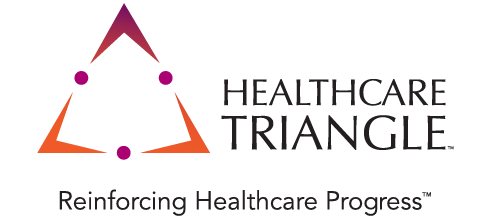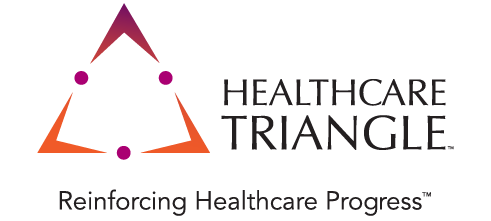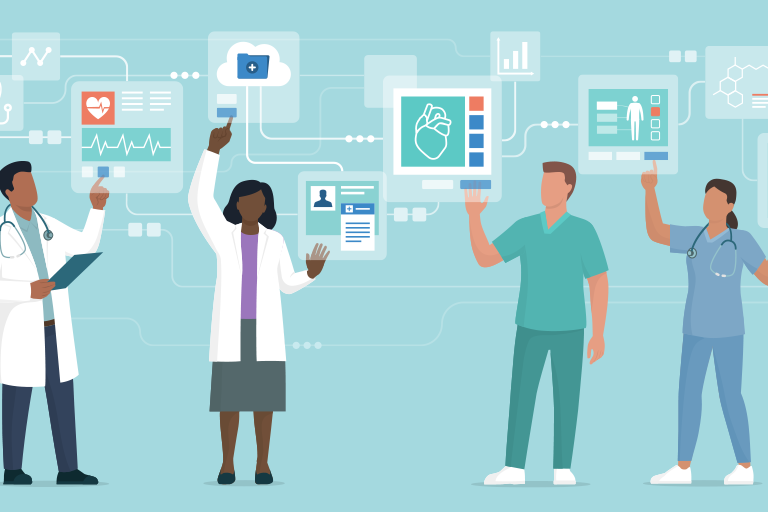Harnessing the Power of Healthcare Data Sharing to Improve Patient Care
Damian David, Senior Director of Healthcare Sales
Apr 17, 2023
And 17 years after my first healthcare data focused posting: Data, Data, Data – We all know we can do more with it to improve the health and wellness of our communities.
The healthcare industry is at a critical juncture as it works to improve patient care in the future. The need for highly regulated HIPAA data sharing among healthcare organizations and competitors has become increasingly essential. As data-driven decisions are becoming more commonplace, the ability to share information securely and efficiently across multiple providers is essential for improving patient outcomes. With the rise of cloud-based technologies, healthcare organizations have an opportunity to share data in a secure and compliant manner.
Additionally, the ability to access real-time data from different healthcare providers allows for timely assessment and response to provide better patient outcomes. By leveraging highly regulated HIPAA data sharing and established standards for data protection, healthcare organizations can form partnerships to improve patient care in the future.
As leaders in healthcare, there is tremendous potential to use data sharing as a way of transforming patient experiences. From the accessibility of remote care options to enhanced collaboration between providers across different organizations to having additional, undistracted, unfatigued “sets of eyes” being vigilant to catch any anomalies in the myriad of data points – this post examines how you can unlock these opportunities for your health system and some key considerations when making it happen.
Different Types of Healthcare Data
Electronic medical record, electronic health record, Clinical data, patient data, Genomic data, financial data, claims data, clinical trial data, wearable devices, social determinants of health are just some of the types of data that surround a person in regards to their health and wellness. This is not a complete list and by the time you read this, there may be an additional dozen sources of data to welcome into the fold.
Benefits of Healthcare Data Sharing for Enhanced Care Delivery
- ✓ Enhanced patient care – Healthcare data sharing gives providers access to a more comprehensive view of each patient’s health, enabling better diagnosis and treatment decisions.
- ✓ Improved coordination of care – Data sharing enables healthcare providers to collaborate more effectively across different organizations or across care teams in the same organization to ensure efficient patient care.
- ✓ Streamlined processes – Sharing data electronically and securely can help speed up administrative processes, such as insurance claims, leading to cost savings and faster service delivery.
- ✓ Reduction of costs – Collaboration between healthcare providers allows them to share resources, leading to lower costs of services and improved patient care. Data can also point to efficiencies in care or practice that can drastically reduce costs as well. Mitigation of risk becomes a natural component of the overall operations of an organization or healthcare provider with fine-tuned access to relevant data and information.
- ✓ Improved insights – By gathering data from different sources, healthcare organizations can gain valuable insights into operations and patient behavior. Decisions on what services to enhance or market to their communities can have greater impact on the overall health and wellness of their ecosystem.
- ✓ Improved Outcomes with data-driven decisions – By providing healthcare professionals with access to data, they can make more informed decisions about how to best treat their patients. /li>
Understanding the Challenges of Healthcare Data Collaboration
Data sharing and collaboration present many real-world challenges for healthcare organizations.
- Security – One of the top challenges facing healthcare data sharing is the need to protect sensitive patient information from unauthorized access and misuse. Especially in these current times when we hear about constant ransomware attacks, where studies point to the US as the top geographical target and healthcare as the top target for industries for bad acters.
- Interoperability – The ability for different systems to communicate and exchange data securely is a challenge that must be addressed to ensure effective healthcare data sharing.
- Quality Assurance – Ensuring the accuracy, integrity and validity of data shared across multiple platforms is essential to ensure patient safety.
- Governance – Establishing a clear set of rules and regulations for how healthcare data should be managed, accessed, and used is critical for effective data sharing.
- Cost – Sharing large amounts of healthcare data requires investments in technology, systems and personnel which can be costly. It is also indirectly costly to participants as they often spend more than necessary on creating, managing, and assuring that platforms protect against and overcome these other challenges. Might I suggest that working with the right partners can drastically reduce time to results, risk, cost, and distraction from being able to focus on what the data can tell you and on to building ways to provide better outcomes for the patients and communities served.
- Privacy – Protecting the privacy of patients is essential to ensure that only authorized individuals have access to sensitive healthcare data.
“Neutral ZoneTM provides the confidence factor to allow leaders to think bigger in terms of what data sets they’re willing to use. We’re just at the beginning of the movement, though. We almost have to break up a paradigm that we’ve created over the past 12 years that’s been built based on risk. If we take the risk away, that opens new doors to data collaboration.” — Damian David, Senior Director, Business Development, Healthcare Triangle
How Third-Party Data Collaboration Platforms Enhance Continuum of Care
Third-party data collaboration platforms can address the long-standing challenges of data collaboration and enable healthcare organizations to transfer the responsibility for managing and protecting data to them.
Healthcare Triangle’s Neutral ZoneTM (managed by DataEzTM) is a secure and compliant AI-based data collaboration platform that enables healthcare organizations to harness the power of identified patient data at scale through creating a “secure sandbox”. In this secure sandbox, artificial intelligence (AI), machine learning (ML) and other advanced tools can be applied to the data. In this way, data – an organization’s own data as well as that of collaborators – are essentially “shared but sealed.”
The system gets exponentially “smarter” as it experiences more data and interventions. The raw data are never disclosed, and the data’s owners can control which portions of a data set are used and how they are used. The platform can also grow its capacity for learning and mining and helping to find additional important findings via anomaly discovery and tireless diligence that can in turn teach the researchers or notify them of additional opportunities to enable the data to help them positively impact their clinical decision making, care strategies, and operations.
Healthcare Triangle’s Neutral Zone, the third-party data collaboration platform:
-
- ✓ Provides access only to the machine that is running the algorithm.
-
- ✓ Prohibits individuals from viewing raw data but allows the algorithm to process the data and share the end results with the collaborative group.
-
- ✓ Maintains full confidentiality of each party’s data while paving the way for faster, more accurate diagnosis of disease, more personalized treatment, and improved understanding of complex conditions.


